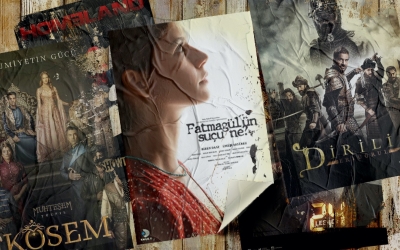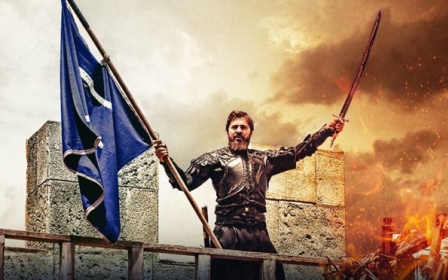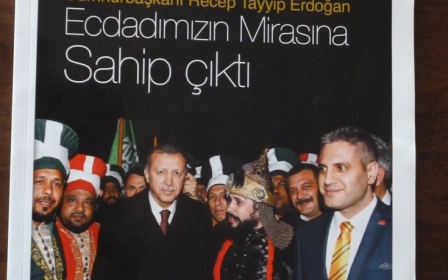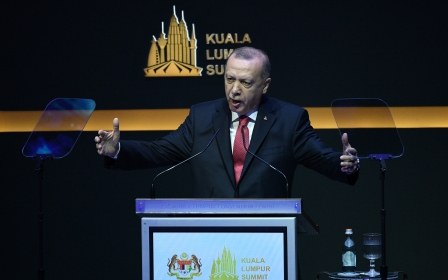Pakistan's Imran Khan says youth can learn 'Islamic values' from Turkish series Ertugrul

Pakistan's Prime Minister has said the country's youth can learn Islamic ethics and values while sitting in front of the TV this Ramadan, after state-run broadcaster PTV began broadcasting the hit Turkish series Dirilis: Ertugrul, known as "Resurrection: Ertugrul" in English.
Prime Minister Imran Khan, a close ally of Turkish President Recep Tayyip Erdogan, said on Sunday that the series, which will be broadcast throughout the Muslim holy month, was better than western and Bollywood culture.
"Culture goes from Hollywood to Bollywood and then here… a third-hand culture gets promoted this way," Khan told reporters. "It is badly affecting our children."
"I want our children and youth to know what the difference is about our culture. It also has romance, history," he said. "[The show] has Islamic values."
Shortly after the first 45-minute episode was broadcast on Saturday, #ErtugrulUrduPTV was trending in Pakistan, with viewers welcoming the series on social media.
New MEE newsletter: Jerusalem Dispatch
Sign up to get the latest insights and analysis on Israel-Palestine, alongside Turkey Unpacked and other MEE newsletters
"In the name of our nation I kindly thank to The Prime Minister @ImranKhanPTI and @PTVHomeOfficial for airing @DirilisDizisi [Ertugrul Gazi] in Urdu," said Turkey-Pakistan Parliamentary group Chairman and AK Party lawmaker Ali Sahin.
According to the Daily Sabah, PTV began dubbing the series in Urdu after Khan visited Turkey last year.
Dirilis: Ertugrul focuses on the 13th-century life of Ertugrul, father of Osman I, the Ottoman Empire's founder.
The show is sometimes referred to as Turkey's Game of Thrones and is one of several Turkish dramas that has gained popularity across Asia, the Middle East, and South America.
It has been attributed to a shift in global cinema, in which Hollywood and American cultural output has begun to lose ground to other world players - such as India with Bollywood, Turkey with its television dramas, and South Korea with its pop music.
Turkey has become the world's second-largest producer of television shows in the world, with audiences that span over 100 countries, and translations or dubbed audio available in Arabic, Farsi, Italian, Spanish, and Urdu.
Turkish television shows, known popularly as Dizi, are synonymous with human and societal issues in Turkey and have also sparked conversations about religion, nationalism, gender, violence, and Ottoman history.
According to novelist and journalist Fatima Bhutto, author of New Kings of the World, Dispatches from Bollywood, Dizi, and K-Pop, Turkish television has garnered universal appeal.
"Turkish television shows blazed through the subcontinent and far beyond because their heroes were modern, but not westernised [and] propelled purely by the righteous power of values," Bhutto writes.
Middle East Eye delivers independent and unrivalled coverage and analysis of the Middle East, North Africa and beyond. To learn more about republishing this content and the associated fees, please fill out this form. More about MEE can be found here.





